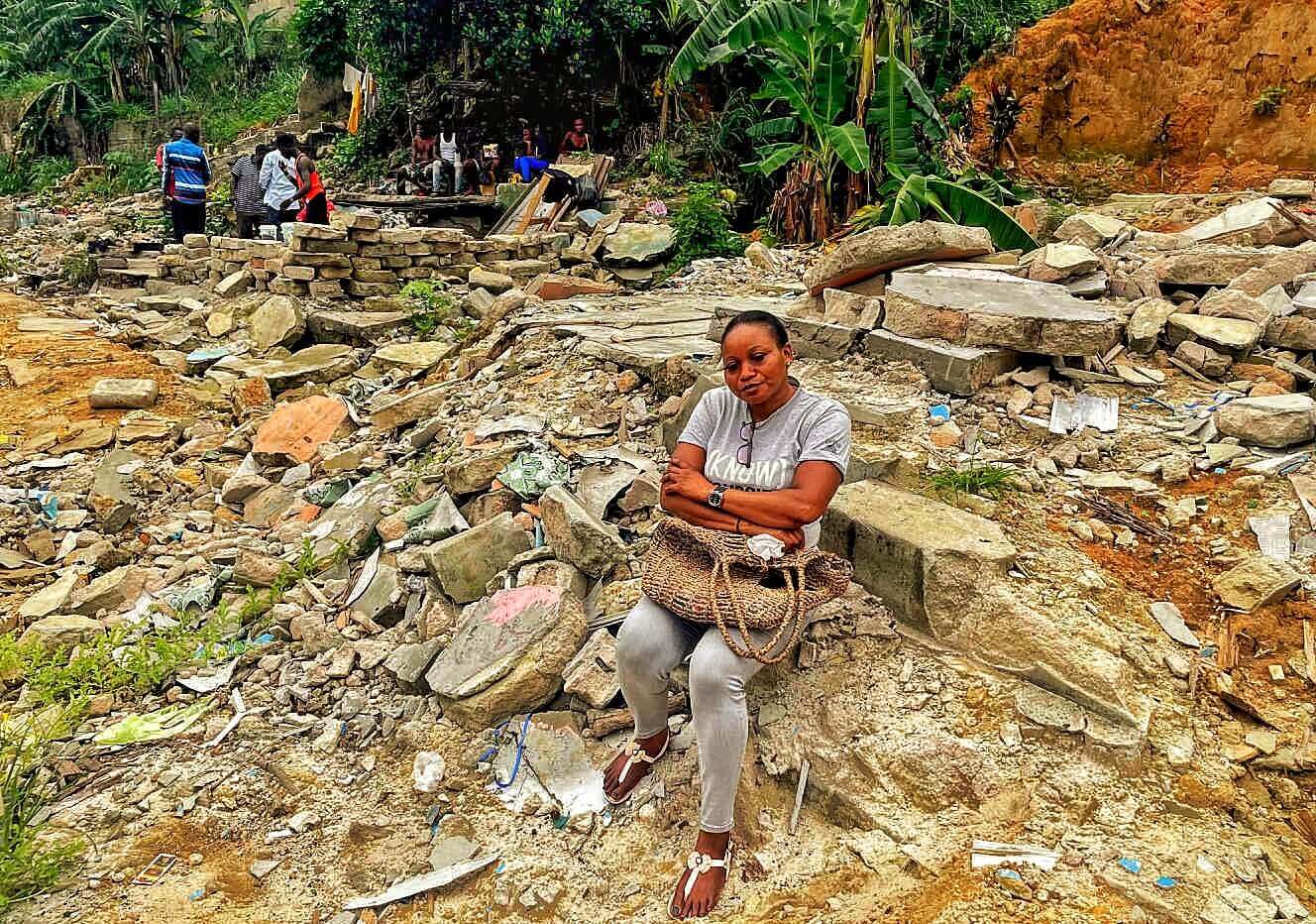Saturday, January 29, 2022, started like every other weekend for residents of the Urualla community in Port Harcourt, Rivers State. Neighbours greeted each other, and those with businesses to run prepared and left in search of their daily bread.
Mary Prince, 38, left for the community market to buy ingredients for the meal she wanted to make for herself and her siblings, who had been staying with her since her parents died.
While at the market, she received the call that would turn her life inside out; one of her neighbours called and asked her to rush home, for the worse was about to happen. “It is an experience that makes me cry, and I can never forget,” Prince said.
Men from the Rivers State Government had matched into Urualla with armed security operatives, pulling down houses without warning. “The government took us unaware by sending bulldozers and scavengers to come and destroy our community,” Prince said.
Without warning, this riverside community of about 20,000 persons was brought down.
One week after, the bulldozers rolled back, leaving behind sorrow, tears and death. Prince said she saw a community member fall due to a heart attack during the demolition after seeing his home destroyed. He later died at the hospital.
“So many people lost their family members, and many are still on the street as we speak with no place to go and no money to rent an apartment,” she said.
What happened next?
Prince and the many others from the community had their lives upturned and had to build back from zero.
“I was doing a petty business of selling plastic rubbers just in front of my house, and it was all ruined when our houses were demolished. We were all kicked out with my family, and since our parents are not alive, the situation was worse for us.”
She later got a place at Ogbunabali, a neighbouring community. Still, it was too small for her and her siblings, so she was forced to send them to stay with extended.
What she experienced shook the core of her existence. So she joined a non-profit, Justice and Empowerment Initiatives or JEI, which helped people like her, displaced and indigent, to recover. She was one of the community members assisting the organization in its outreach to Urualla before it was demolished.
She earns little stipends, which is not enough to pay her outstanding rent and take care of her siblings.
The job helps keep her afloat and allows her to provide guidance to needy people at their lowest, something she has always loved doing even at her lowest.
Many more
Even though Prince’s case looks pitiable, she is not peculiar. Since the return of democracy, various state governments have embarked on forced demolitions that have rendered many homeless. Between November 9, 2016, and April 9, 2017, in Lagos State, over 30,000 people were forcibly evicted from Otodo-Gbame and Ilubirin settlements, two waterfront communities in Nigeria’s commercial capital.
Also, the Guardian Newspaper, the Lagos State Government, at one point or another, sent bulldozers to the following communities in the State; “Makoko community, Yaba, Ijora East and Ijora Badiya, PURA-NPA Bar Beach, Ikota Housing Estate, Ogudu Ori-Oke, Mosafejo in Oshodi, Agric-Owutu communities, Ageologo-Mile 12, and some communities along Mile 2 Okokomaiko to mention but a few.”
There have also been recorded evictions in Abuja, the federal capital territory.
Before the evictions like the one in Urualla, Raquel Rolnik, former Special Rapporteur on the right to adequate housing, warned that “evictions should not result in individuals being rendered homeless or vulnerable to the violation of other human rights.”
Raquel warned that “Nigeria, as State Party to several international human rights treaties, must take all appropriate measures, to the maximum of its available resources, to ensure that adequate alternative housing or resettlement is available.”
But there is barely any evidence that any of that was done.
On Saturday, January 29, 2022, the Urualla community in Port Harcourt, Rivers State, experienced a sudden and devastating demolition by the Rivers State Government. Without prior warning, officials and armed security operatives tore down houses, displacing around 20,000 residents. Mary Prince, who was shopping at the time, was summoned home to witness the destruction of her community.
Prince and others were forced to start anew, with many left homeless and in distress. Prince, who was previously engaged in a small-scale business, had to relocate to a smaller place, splitting from her siblings. She joined the non-profit, Justice and Empowerment Initiatives, to support others in similar situations, though the stipends she earns are minimal.
This incident is part of a broader pattern of forced demolitions in Nigeria, notably in states like Lagos and Abuja. Many communities have faced similar fates, with little to no provision for alternative housing or resettlement, violating international human rights standards. Despite warnings from human rights experts, displaced individuals continue to struggle with inadequate support from the government.






